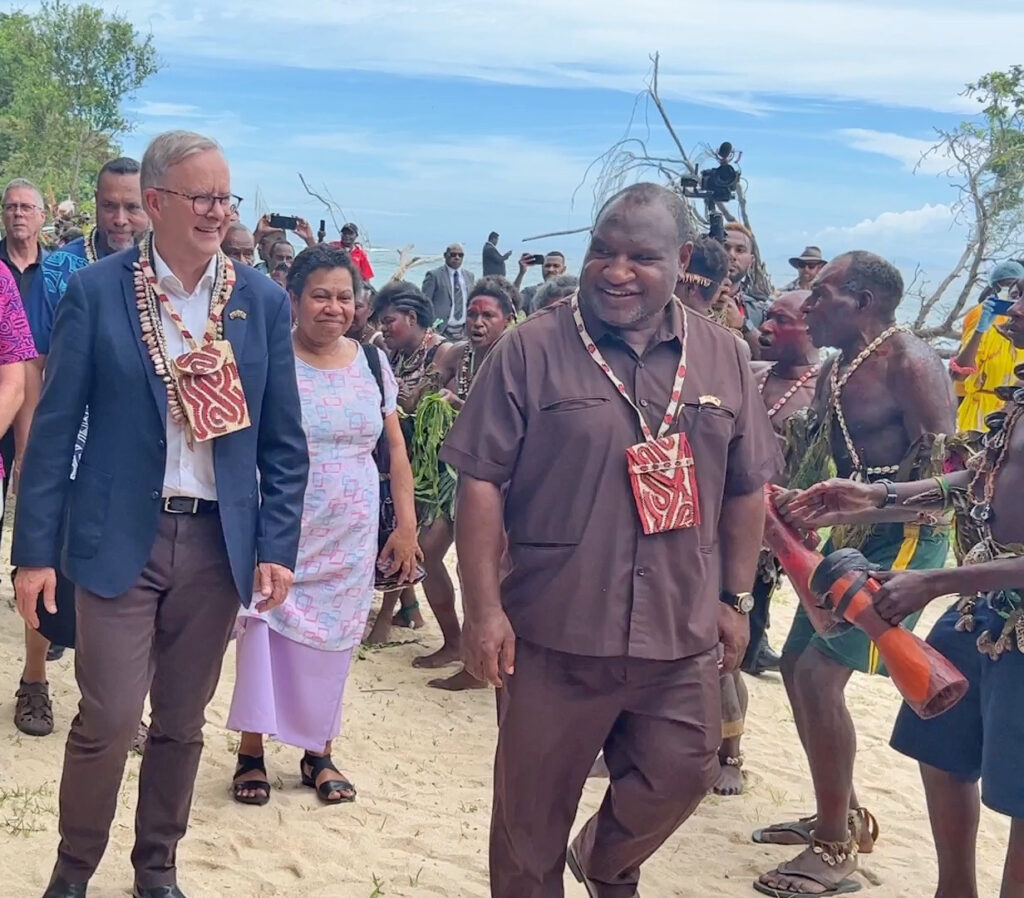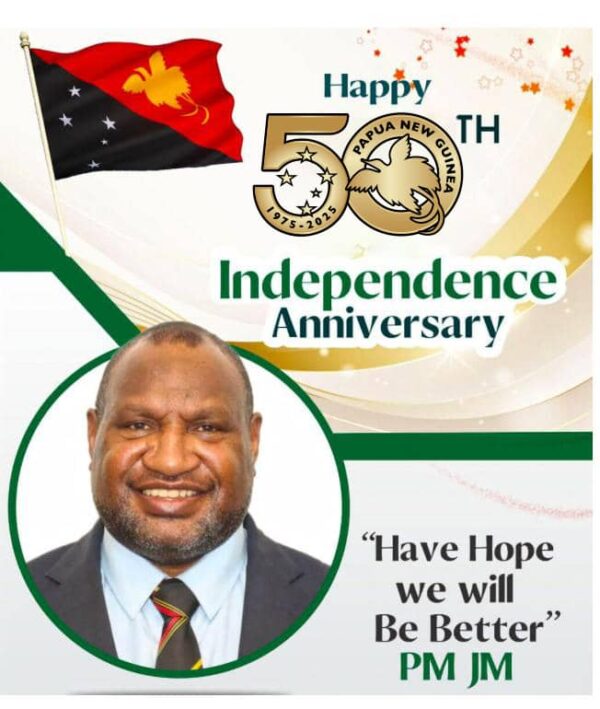FEBRUARY 19, 2022
Prime Minister Hon. James Marape has welcomed the successful outcomes of the 29th Australia–Papua New Guinea Ministerial Forum which was held in Canberra, Australia, on February 17, 2023.
“I welcome the outcomes of the very-successful Forum which follows on from my meeting with Australian Prime Minister, Hon. Anthony Albanese, last month,” he said.

“One of the most-significant is our Ministers undertaking to ensure efficient and speedy Australian visa-issuing arrangements to help underpin labour, business and broader people-to-people connections.
“This means that at least 75 per cent of completed visitor visa applications will be processed within 14 days, with in-country visa processing in PNG.
“This expands opportunities for Papua New Guineans to enter the Australian labour market, including increasing training and skilled labour under the new Australian Pacific Engagement Visa.
“I thank our PNG team led by Foreign Affairs Minister Hon. Justin Tkatchenko for a very-successful meeting which will be mutually-beneficial for both countries.”
The Forum was co-chaired for Australia by Senator Hon. Penny Wong, Minister for Foreign Affairs and for PNG by Minister Tkatchenko.
Participating Ministers for PNG were Hon. John Rosso, Deputy Prime Minister, in his capacity as Minister for Immigration and Labour plus other Ministers whose attendance was necessitated by the agenda of the Forum.
This was the first Ministerial Forum following elections in both countries in 2022. It was also the first in-person Forum held since 2019, due to border closures related to the COVID-19 pandemic. The last Ministerial Forum was held virtually on September 2, 2021.
The major outcomes are:
- Ministers renewed their commitment to the Comprehensive Strategic and Economic Partnership (CSEP), to guide the modern partnership between PNG and Australia. They undertook to implement this partnership through coordinated, deeper sectoral engagement led by Ministers from each side, and to take forward the outcomes and commitments arising from the 2023 Annual Leaders Dialogue;
- Ministers reflected on the deep historical and familial connections which have brought the nations together in a unique partnership, and committed to ensuring that this partnership of equal and sover’eign neighbours grows to reflect contemporary opportunities and challenges;
- Ministers undertook to further accelerate the integration of the two economies, including through the Australia-PNG Economic Partnership. They noted the importance of expanding opportunities for Papua New Guineans to enter the Australian labour market, including increasing training and skilled labour under the new Australian Pacific Engagement Visa. They acknowledged that efficient and speedy visa issuing arrangements would help underpin labour, business and broader people-to-people connections and announced separately a range of steps that would be taken to improve their respective systems. Ministers agreed to aim to process at least 75 per cent of completed visitor vias applications within 14 days. Ministers agreed to open in-country visa processing in PNG. They agreed to establish a joint ministerial working group to oversee this work, including Deputy Prime Minister Marles, Foreign Minister Wong, Minister for International Development and the Pacific Conroy, with Immigration Minister Giles, and on the PNG side, Deputy Prime Minister Rosso and Foreign Minister Tkatchenko;
- Reflecting the significant role of business and industry in the relationship, and the importance of Australia’s AUD24.8 billion (K58.8 billion) in investment in PNG, Ministers encouraged the two business communities to consider how to invest in the many opportunities such as special economic zones that PNG offered, including in downstream processing of agriculture, fisheries and forestry, and the green economy and in agriculture. They committed to examining recommendations and implementing mutually agreed outcomes of the bilateral trade assessment, as agreed in the CSEP, with particular focus on support for PNG’s biosecurity arrangements to enable it to access export opportunities including in Australia. They also welcomed the valuable input of the two business communities, as represented in their respective Business Councils;
- Ministers welcomed progress made in discussing the scope, purpose and structure of a broad Bilateral Security Treaty, in accordance with the timeline set by Prime Ministers at the Annual Leaders Dialogue in January 2023. They noted the need for consideration of domestic legal and constitutional aspects to enable a treaty to come into effect. They noted the importance that PNG placed on addressing internal security and law and justice issues, and Australia’s commitment to assist. Ministers agreed to establish a joint ministerial working group – including Deputy Prime Minister Marles, Foreign Minister Wong, Minister for International Development and the Pacific Conroy, and on the PNG side, Deputy Prime Minister Rosso and Foreign Minister Tkatchenko with Internal Security Minister Tsiamalili – to oversee deepening cooperation in these areas;
- Ministers noted the two countries’ commitment to supporting regional peace, security, economic resilience and Pacific unity as the most populous members of the Pacific family and recommitted to a Pacific-family first approach to regional security needs as endorsed by PIF leaders and as we work together to implement the 2050 Strategy for the Blue Pacific;
- PNG welcomed Australia’s renewed focus on climate change and Ministers agreed that Australia partnering with the Pacific to co-host the 31st UNFCCC Conference of the Parties (COP31) in 2026 would allow us to combine forces and secure ambitious climate change outcomes and help place Pacific voices at the centre of international climate discussions. Ministers recognised PNG’s interest in securing a greater share of international climate finance and welcomed PNG’s participation in the Indo-Pacific Carbon Offset Scheme (IPCOS). Ministers committed to sign the IPCOS Joint Action Plan as early as possible this year; and
- Ministers welcomed conclusion in 2022 of the first annual CSEP Action Plan and looked forward to progress under the 2023 CSEP Action Plan, as a tool to help take forward Prime Ministerial and Ministerial priorities. The six CSEP pillars are:
- Strong Democracies for a Stable Future;
- Close Friends, Enduring Ties;
- Economic Partnership for Prosperity;
- Strategic Cooperation for Security and Stability;
- Social and Human Development; and
- Near Neighbours, Global Partners
******
![]()
